Probiotic Supplements
As a child, you probably thought of bacteria as germs that make you sick. Hopefully you’re now old enough to understand that there are both good and bad bacteria. And in the gut the good bacteria are called probiotics. While probiotics can be found naturally in your body, you can also get them in some foods and probiotic supplements.
How Do Probiotic Supplements Work?
Researches on probiotics are very recent, since interest in this kind of bacteria only grew during the 1990s. Because of this, scientists are still trying to pin down exactly how probiotics work. But some studies indicate that they can be helpful in several ways:
- Probiotic supplements can help you replenish your levels of good bacteria. It’s been known that when you take antibiotics, it also eliminates good bacteria in your body which is why taking probiotics after a course of antibiotic treatment is recommended.
- Your body works optimally when you have a good balance between your good and bad bacteria. Probiotics can help restore that balance.
- Some types of probiotics can help prevent diarrhea due to infections or antibiotics. They can also help counter the symptoms of irritable bowel syndrome.
- It can even help against cadmium poisoning. Cadmium damages the intestinal tract. It causes inflammation, increases the intestinal permeability, and disrupts the “tight spots” that provide a barrier against fluids. Probiotics reduce the inflammation and the intestinal permeability, and it also reverses the disruption of the tight spots.
Some other evidence also indicates that probiotics can help with many more conditions, but they’re mostly anecdotal. Some people have reported that their probiotic supplements have helped them with problems like tooth decay and gum disease, allergic disorders like hay fever and eczema, the common cold, and even liver disease.
Types of Probiotics
There are many types of Probiotics and Probiotic Supplements, each one comes with its own set of benefits. But they can be grouped into 2 main categories.
- Lactobacillus. This is probably the most common probiotic. It’s what you find in yogurt and other fermented foods. Different types of lactobacilli can help with diarrhea and they can also help with people with lactose problems.
- Some dairy products contain this type of probiotics. It can alleviate the symptoms of irritable bowel syndrome (IBS) and a few other conditions.
Are There Any Potential Side Effects?
If you have serious underlying medical conditions, then you shouldn’t take probiotics unless you have your doctor’s explicit approval. You can be at risk for very serious side effects if you are critically ill, have a weakened immune system, or have had recent surgery. It’s also not recommended for very sick babies or for anyone taking prescription medication.
However, probiotics have an excellent safety record for users who are generally healthy. Side effects are extremely rare. Even when they do occur, they’re usually very mild symptoms like gas.
Take a look at our available probiotic supplements, as we’ve made sure we only offer products from reputable manufacturers. Take probiotic supplements to help you maintain your gastrointestinal health.
Showing all 6 results
-
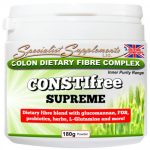
CONSTIfree colon cleanser detox
£12.50 Add to basket -
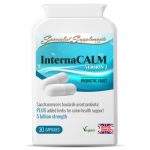
InternaCALM probiotic digestive system support
£11.99 Add to basket -
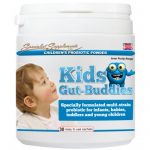
Kids Gut Buddies Probiotic Supplements
Sale!£16.99£13.99 Add to basket -
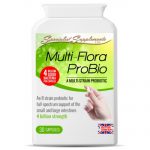
Multi-Flora ProBiotic supplement tablets
£10.99 Add to basket -
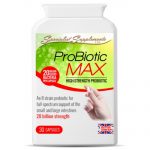
ProBiotic maximum strength capsules
Sale!£19.99£18.99 Add to basket -
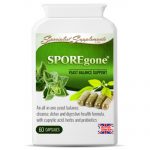
SPOREgone yeast and gastrointestinal support
Sale!£13.99£12.99 Add to basket
Showing all 6 results





